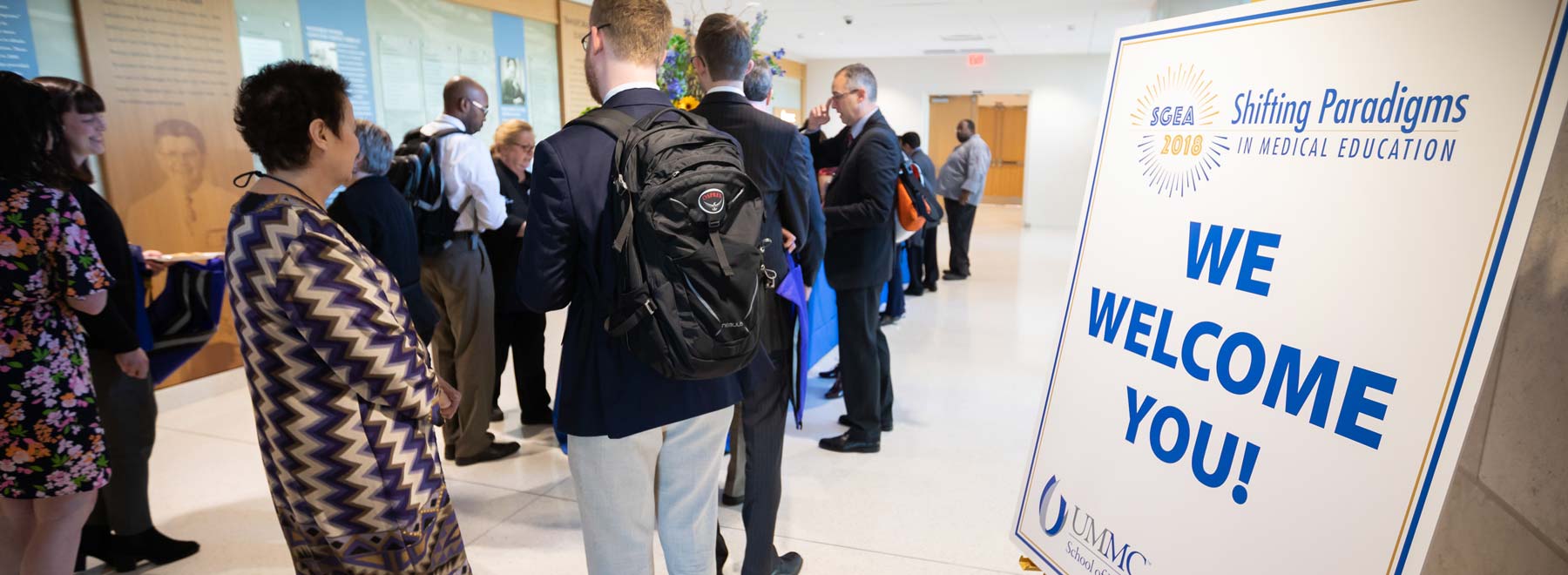A touch of class: Far-reaching conference instructs the instructors
When the new School of Medicine education building opened eight months ago, it was embraced as a state-of-the art site for educating students.
But for much of last week, educators were also getting schooled.
For more than three days starting Wednesday, the medical education building was the setting for the Southern Group on Educational Affairs conference; it was the place to be for faculty, administrators and others affiliated with the Association of American Medical Colleges.
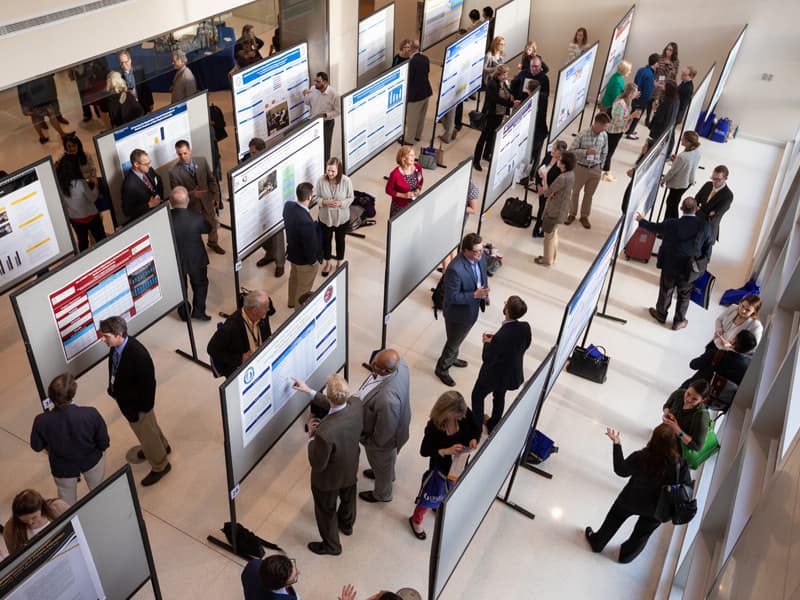
So far, no event hosted in the 151,000-square-foot venue has equaled the magnitude of the SGEA forum, whose attendees represented schools of medicine and professional organizations from across the South, including the University of Texas School of Medicine at San Antonio, which helped sponsor it.
“There’s no question that we would not have been able to host a meeting of this size and scope without our new medical education building,” wrote Dr. LouAnn Woodward, vice chancellor for health affairs and dean of the School of Medicine, in her VC Notes on Friday.
The size: around 245 registered attendees. The scope: More than 100 presentations tied to the theme of “Shifting Paradigms in Medical Education.”
“The new building enabled us to put together a program with a lot packed in it for a short period of time,” said Dr. Loretta-Jackson Williams, UMMC vice dean of medical education and the conference host and chair.
Among the distinguished speakers and presenters were Dr. Kevin Krane and Dr. Karen Marcdante, who bookended the conference, sequentially and philosophically; Krane described where medical education has been, and Marcdante anticipated where it will be.
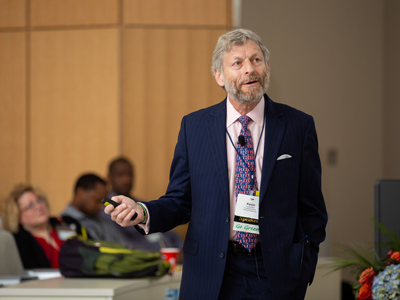
“If we’re not changing all the time, we’re not doing anything,” said Krane, professor of medicine and vice dean for academic affairs at Tulane University School of Medicine.
And, yet, he said, “Things that were talked about [in medical education] more than 100 years ago are still sitting there like the elephant in the room.”
One of the elephants is the need to “make medical educators feel valued,” he said. Another is this continuing argument: What should every student know to be prepared for a residency?
Progress has arrived, Krane said, with self-directed learning, a greater focus on the importance of population health and more.
“The good news is that there are organizations like this one,” Krane said. “We are actually beginning to look for solutions.”
Some of those solutions may lead to a day forecast by Marcdante, professor of pediatrics and a practicing pediatric intensivist at the Medical College of Wisconsin.
Interviewed before her presentation, Marcdante said the physician of the future will see more distant delivery of medicine, through telehealth and through “wearables” that “tell us how patients are doing.”
Such adaptations address the need to “move from curing disease to prevention, and the promotion of health,” she said.
Physician educators, clinicians, basic scientists, program directors, along with residents and students were also in the mix at the conference.
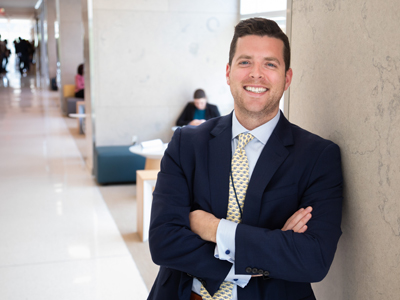
“This is also a great way to learn more about having a career in medical education, for those who are considering one,” said Stephen McKenzie, director of constituent engagement for the AAMC.
“And we like it when students give presentations here.”
Tyler Callese was among a handful who did. Less than two weeks from graduation at the Wake Forest School of Medicine in North Carolina, the Chicago native outlined the Navigating Medical School Program, which tries to help learners answer such questions as: “How do you study? How do you know what you want to do? How do you choose a specialty?”
Callese, who has been the course director for this “all-inclusive” guide, said “mentors have been important to me throughout my education. My career is definitely going to be in academics.”
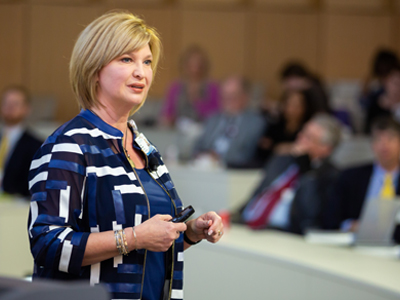
Setting the tone for the event was UMMC’s vice chancellor. During the first plenary session, Woodward told a story from her stint as an emergency room physician, describing the day she met a 60-something patient with an “orange- or grapefruit-size” mass on his face.
It was obvious that he had been suffering for a while, she said, and when she asked him why he decided on this day to see a doctor, he told her it was because he could finally get a ride.
“That’s what we face in Mississippi,” she told her audience. Such challenges raise a question she is often asked, she said: Why do you continue to do this?
“My answer is: We’ve got 10,000 people here who are … giving everything they’ve got,” she said, referring to UMMC’s employees. “This is a place where you never have to wonder if what you’re doing matters.”



